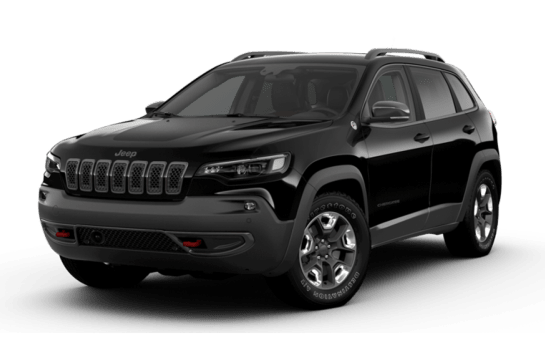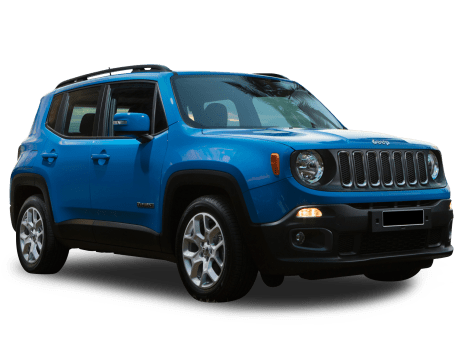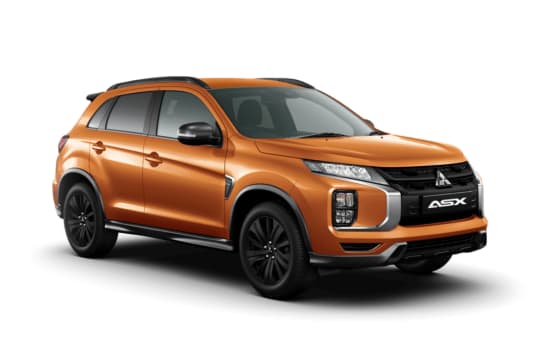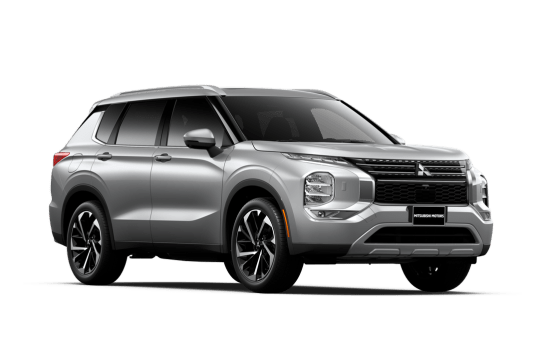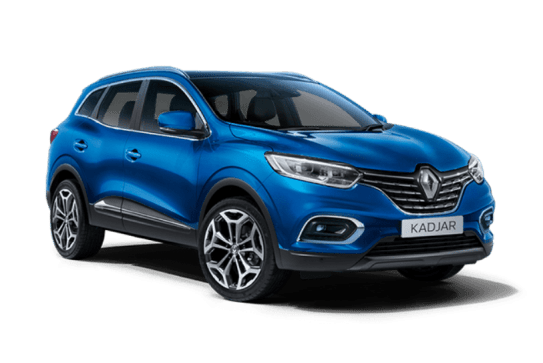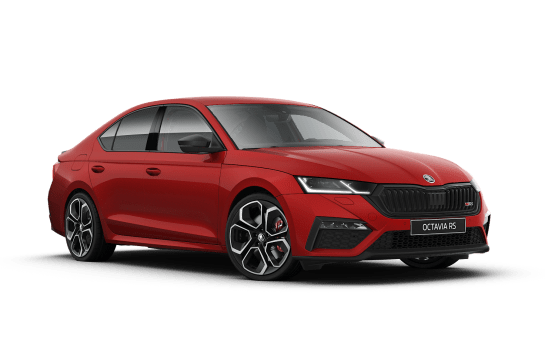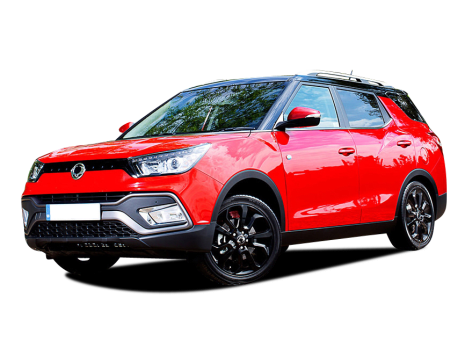
Fiat 500X VS Volkswagen T-Roc
Fiat 500X
Likes
- Fun looks
- Good interior
- Great safety package
Dislikes
- Iffy transmission
- Oddball ride
- Slow
Volkswagen T-Roc
Likes
- Easy and fun to drive
- Sturdy, quality feel
- Value without options
Dislikes
- Options become pricey
- Minor ergonomic quirks
- Might feel outdated to some
Summary
Fiat 500X
Fiat's indomitable 500 is one of the great survivors - not even VW's recently deceased New Beetle could keep riding the nostalgia wave, partly because it made itself just that little bit out-of-touch by not being a car anyone can buy. The 500 avoided that, particularly in its home market, and is still going strong.
Fiat added the 500X compact SUV a few years ago and at first I thought it was a daft idea. It's a polarising car, partly because some people complain it's capitalising on the 500's history. Well, duh. It's worked out well for Mini, so why not?
I've driven one every year for the last couple so I was keen to see what's up and whether it's still one of the weirdest cars on the road.
| Safety rating | |
|---|---|
| Engine Type | 1.4L turbo |
| Fuel Type | Premium Unleaded Petrol |
| Fuel Efficiency | 5.7L/100km |
| Seating | 5 seats |
Volkswagen T-Roc
For a small SUV that technically starts under the $40,000 mark, the 2024 Volkswagen T-Roc has a fair bit going for it.
It’s still in its first generation, but updates have made some parts of the T-Roc feel properly up to speed. And the parts that haven’t? Well, maybe that’s not such a bad thing.
We’re driving the mid-spec Style 110TSI, which sits above the base CityLife, but below the R-Line. Then of course, there’s the wicked R variant.
Read more about
- This is the Volkswagen Amarok SUV, a sibling to the Ford Everest 4WD that's yet to become a production model
- Hi-po electric Kombi! 2025 Volkswagen ID. Buzz GTX revealed ahead of Australian arrival where it will take on the Mercedes-Benz EQV and LDV Mifa9
- 2024 Volkswagen Golf 8.5 facelift revealed, confirmed for Australia: Tweaked styling, an updated hybrid system, and upgraded software highlight changes for the brand's key Toyota Corolla and Hyundai i30 rival
But is this a Euro that could replace your trusted Japanese small SUV?
| Safety rating | |
|---|---|
| Engine Type | 1.4L turbo |
| Fuel Type | — |
| Fuel Efficiency | 6.3L/100km |
| Seating | 5 seats |
Verdict
Fiat 500X6.8/10
The 500X is a fun-looking alternative to the various options available from everyone else and is - overall - better to drive than its Renegade twin.
It packs a very good safety package which you can't ignore but does lose points on the warranty and servicing regime. But it's also built to take four adults in comfort, which not every car in the segment can boast.
Would you choose the Fiat 500X over one its better-known competitors? Tell us in the comments section below.
Volkswagen T-Roc7.8/10
So that’s the T-Roc, a bit of Euro style that’s still priced to take the fight to some small SUVs from Japan or Korea.
Is it the cheapest style-forward small SUV you can get? No, but it’s far from the expensive end of things.
Plus, if you can resist ticking some option boxes, it beats some value-focused rivals and looks good doing it.
If the feeling of a sturdy fit-out and a confidence inspiring drive is important to you, I reckon the T-Roc should be an entry on your shopping list.
Design
Fiat 500X7/10
Look, I like the 500X, but I know why people don't. It's clearly a 500X in the way a Mini Countryman is a Mini. It looks like a 500, but get closer and you see the difference. It's chubby like a $10 weekend market Bhudda statue and has great big googly eyes like Mr Magoo. I find this endearing, my wife does not. The looks aren't the only thing she doesn't like.
The cabin is a bit more restrained and I quite like the band of colour stretching across the dash. The 500X is meant to be a bit more grown up than the 500, so there's a proper dash, more sensible design choices but it still has the big buttons, perfect for the meaty fingers of people who won't be buying this car.
Volkswagen T-Roc
The T-Roc subtly stands out without being garish, avoiding becoming part of the highway or suburban camouflage without relying on extreme design decisions.
For example, the LED daytime running lights that wrap around the shapes below the LED 'I.Q' headlights where vents would otherwise be on the R performance variant are quite cute.
In fact, the whole front end of this small SUV has a friendly look, even if there’s nothing specific that’s particularly exciting about it.
This 'Petroleum Blue Metallic' colour is a $700 option, but anything other than white costs extra.
However, the black roof two-tone look is a standard for the Style, as are the black mirror caps and its 18-inch alloys.
There are roof rails up top, tinted privacy windows for rear passengers and for the rear window and a sloping roofline at the rear that adds a touch of ‘sport’ to the silhouette along with a small spoiler at the top.
Practicality
Fiat 500X7/10
At just 4.25 metres, the 500X isn't big, but makes the most of what it's got. The boot impresses at 350 litres and with the seats down, I think you could reasonably expect to triple that figure, though Fiat doesn't have an official number that I can find. For added Italian feel, you can tip the passenger seat forward to get really long things in, like a Billy bookshelf flat pack from Ikea.
Rear seat passengers sit high and upright meaning leg and kneeroom are maximised and with that tall roof, you won't scrape your head.
The doors each have a small bottle holder for a total of four and Fiat has got serious about cupholders - the 500X now has four.
Volkswagen T-Roc
Inside the T-Roc is a bit of an interesting dichotomy.
Some of what’s in here is ‘old-gen’ Volkswagen stuff, but it still holds up today against even some recently introduced models.
The dichotomy is that while it’s very usable and slick, some of its materials and surfaces let it down a touch.
The good points are that the cabin tech is a perfect level of physical and digital. The buttons and controls are easy to use and feel solid and even though the climate controls could be more physical, they’re still good as far as touch panel style controls go.
The older VW gear is arguably better than a lot of what’s found in newer models where some use of touchscreens and haptic panels has drawn negative feedback from customers.
The multimedia software managed via the 8.0-inch touchscreen is more simple and sensible than the new version, plus the Digital Cockpit Pro display for the driver is clear and, importantly, customisable. It’s a similar cockpit system that used to seem quite impressive in high-end Audis.
But what doesn’t feel very high-end is some of the plastic and the decisions around function in the rest of the space.
The leather on the seats is not a cheap option box to tick at $3450, but it feels a little cheap to the touch. It’s a tad hard and even has a bit of a rough look to it.
That option also makes them heated and electrically adjustable, though, which is welcome in winter. Otherwise, cloth seats without the optional leather or heating would be absolutely fine, and that means you get a storage space under them, too.
This central space between the driver and front passenger, too, is a little awkward with the cupholder placement. It’s behind the shifter meaning a tall bottle will be in the way and it’s got slightly odd sizing for bottles or cups with nothing to stop them wobbling.
I am, however, a fan of the angled-away phone slot under the climate controls to minimise phone screen visibility (and distraction) and the traditional shifter itself is welcome.
Look up, and (in our test car) there’s an optional ($2000) panoramic sunroof there. It’s yours if you want it, and it does have an electric blind, but some Japanese and Korean cars at this price point get that as standard.
An average-sized adult will find the second row is spacious enough and relatively comfortable. There’s an armrest, dual-directional vents and two USB-C ports.
Behind that, boot space is generous at 445L with the seats up thanks to an adjustable floor, which is very useful for tall items and even manages to fit a space saver spare tyre under it.
It’s a total of 1290L with the split-fold seats down, too, though they’re not super flat with the adjustable floor down.
Price and features
Fiat 500X7/10
I drove the Pop Star, which is the second of the now-two model "regular" range, the other being the, er, Pop. I drove a Special Edition in 2018 and it's not clear if it is Special as there's also an Amalfi Special edition. Anyway.
The $30,990 (plus on-road costs) Pop Star has 17-inch alloys, six-speaker Beats-branded stereo, dual-zone climate control, reversing camera, keyless entry and start, active cruise control, sat nav, auto headlights and wipers, leather shifter and steering wheel and a space-saver spare.
The Beats-branded stereo speakers are supplied with noise from FCA's UConnect on a 7.0-inch touchscreen. The same system is in a Maserati, don't you know. Offering Apple CarPlay and Android Auto, UConnect loses points by shrinking the Apple interface into a lurid red frame. Android Auto properly fills the screen, for some reason which is ironic given Apple owns the Beats brand.
Volkswagen T-Roc
The specific Style test vehicle being reviewed here is priced at $38,890, before on-road costs. But it's worth noting a new example of the Style will cost you $39,790 at the time of writing, as its price has since ours was 'delivered'.
While the Style features some older VW fitout, it comes with a decent list of features.
A set of 18-inch wheels, self-levelling headlights (with cornering function), some cute LED DRLs plus chrome highlights with black contrast trim are the best way to spot a Style from the outside.
Inside, there’s an 8.0-inch touchscreen for multimedia paired to the driver’s 'Digital Cockpit Pro' display.
The multimedia screen is last-gen VW gear, but that’s not a bad thing.
There’s also dual-zone climate control with an allergen filter, ambient lighting, a six-speaker sound system, wireless phone charger and wireless Android Auto and Apple CarPlay.
There are a few options on our test car that nudge the price up quite quickly, like the metallic paint, leather upholstery, sunroof, plus the keyless entry or ‘Easy open and close package’.
All this brings the total price as-tested to $45,640, before on-roads.
The good news is you don’t need to tick all, or any, of those options for this to still be a compelling option.
Under the bonnet
Fiat 500X7/10
Fiat's rather excellent 1.4-litre turbo MultiAir does duty under the stubby bonnet, making 103kW and 230Nm. Rather less excellent is the six-speed dual-clutch automatic transmission, which sends power through the front wheels only.
It's rated to tow a 1200kg braked trailer and 600kg unbraked.
Volkswagen T-Roc
The engine in the T-Roc - as with most Volkswagens - does what it says on the tin. Essentially, a 110TSI means there’s 110kW of turbocharged VW happening, in this case a 1.4-litre four-cylinder that also makes 250Nm of torque.
It’s paired to an eight-speed torque converter, which will be music to the ears of those who have been scorned by older VW dual-clutches.
It drives the front wheels only, and there’s no hybridisation or 48-volt system.
Efficiency
Fiat 500X6/10
Fiat rather optimistically suggest you'll get a combined cycle figure of 5.7L/100km but try as I might, I couldn't do better than 11.2L/100km. What's worse, it demands 98RON fuel, so it's not the cheapest car to run. This figure us consistent with past weeks in the 500X and no, I wasn't thrashing it.
Volkswagen T-Roc
A lack of electrification in a relatively small engine and a traditional drivetrain shouldn't scare you too much, in this case.
Combined cycle fuel consumption is a claimed 6.3L/100km. On test in mostly urban areas or for spirited driving we saw the fuel use rise a little higher than that but not by as much as you might think.
After a mix of primarily urban, some highway and a stint of dynamic test driving, the trip computer admitted to a figure of 8.1L/100km.
Driving
Fiat 500X6/10
Again, I shouldn't like the 500X but I really don't mind it. It's flawed, which might be why.
The dual-clutch transmission is dumber than a box of loose cogs, lurching from start and looking the other way when you expect it to shift. We know the engine is a good one and I think part of the reason it's so thirsty is the confused way the transmission goes about its business. I'd love to drive a manual to see what it's like.
The 500X initially feels worse than its Jeep Renegade sibling-under-the-skin, which is quite an achievement. Part of that is to do with the ride, which is very choppy below 60km/h. The first 500X I drove wallowed about but this one is a bit tauter, which would be good if you weren't punished with this bounciness.
The seats themselves comfortable and the interior is a good place to hang out. It's reasonably quiet, too, which is at odds with the old-school silliness of its conduct. It feels like Labrador let out of after day kept inside.
And that's where the car I shouldn't like is a car I do like - I really like that it feels like you're on Roman cobblestones, the type that make your knees hurt when you walk on them for a day. The steering wheel is too fat and is at a weird angle, but you kind of square up to it and drive the car like your life depends on it. You have to take it by the scruff, correct the shifts with the paddles and show it who's boss.
Obviously, that's not for everyone. If you drive it really gently, it's a very different experience, but that means going slowly everywhere, which is no fun at all and not at all Italian.
Volkswagen T-Roc
The T-Roc is essentially a previous-generation Golf-turned-small SUV in terms of its platform, and that’s a great thing for anyone who likes driving.
The Golf 7.5 was a benchmark for everyday driving as far as hatchbacks are concerned, and even though the current Mk8 might be a bit more up to date, the T-Roc’s use of the platform it rides on is practical and fun.
It’s not as nimble as a Golf, but the T-Roc in front-drive Style guise, with a responsive turbocharged engine and no all-wheel drive system weighing it down, is not only more dynamically capable than most rivals, it’s also easy to access that capability.
The 1.4-litre engine feels well-tuned for its two modes accessible through the shifter - calm but not lazy in ‘Drive’ and eager but not thrashy in ‘Sport’.
It works well with the transmission on the move, picking right gears fairly accurately, though there are paddles behind the wheel for those who prefer to take charge.
The drive modes are also more customisable than just those on the shifter, with 'Individual' selections for steering and drivetrain able to be used rather than the standard 'Eco', 'Normal' or 'Sport' full-system modes.
While the steering wheel itself is a little thick and the feedback, while adequate, isn’t the most telling, it’s accurate and inspires confidence in cornering.
The T-Roc handles turn-in and exits well, even soaking up bumps and not becoming unsettled when braking.
Its safety systems are relatively subtle, and the active cruise control is well sorted, though the automatic braking at car park speeds can be overzealous. Something I’ve experienced in VW Group models several times over the years.
The main culprit for the T-Roc was a shrub beside my driveway that, while not touching the car, would set off the automatic braking system. Still, better than letting the car roll back if there was a proper obstacle or someone who could be hurt in the way.
Aside from that, the Volkswagen T-Roc is fun and easy to drive, and the work that’s gone into that puts its price into perspective a little more.
There are more expensive cars available that are less impressive, some even disappointing.
Safety
Fiat 500X8/10
Out of the box, you get seven airbags, ABS, stability and traction controls, forward collision warning, high and low speed AEB, active cruise control, rollover stability, lane departure warning, lane keep assist, blind spot sensor and rear cross traffic alert. That's not bad for a $30,000 car full stop, let alone a Fiat.
There are two ISOFIX points and three top-tether anchors for baby seats.
The 500X scored a five-star ANCAP rating in December 2016.
Volkswagen T-Roc
In 2017, ANCAP gave the T-Roc five stars for safety. For most people, that says enough, plus the list of features the SUV comes with is fairly comprehensive even in the Style.
While its rating is getting on in years, the only real downside to the T-Roc’s age when it comes to safety is it only having six airbags - front and side for the front passengers, plus curtain airbags for front and rear passengers.
But the list of tech isn’t lacking, with driver fatigue detection, pedestrian monitoring, parking bay and parallel parking assistance, pedestrian monitoring, side assist, rear cross-traffic alert and lane assist.
Ownership
Fiat 500X6/10
Fiat offers a three-year/150,000km warranty, along with roadside assist for the same period. It's not great as more manufacturers shift to five years.
Service intervals arrive once a year or 15,000km. There is no fixed or capped-price servicing program for the 500X.
Volkswagen T-Roc
Volkswagen’s five-year/unlimited kilometre warranty is pretty standard for a premium-leaning brand, with VW also offering roadside assistance for the warranty period.
In terms of servicing, VW offers care plans of three years or five years, covering servicing for $1515 or $2770 respectively. That's an average of $505 or $554 per workshop visit.
Otherwise, servicing costs at 12-month/15,000km intervals can cost from $470 for some to $1104 to the biggest service if you don’t go with the locked-in package.


















